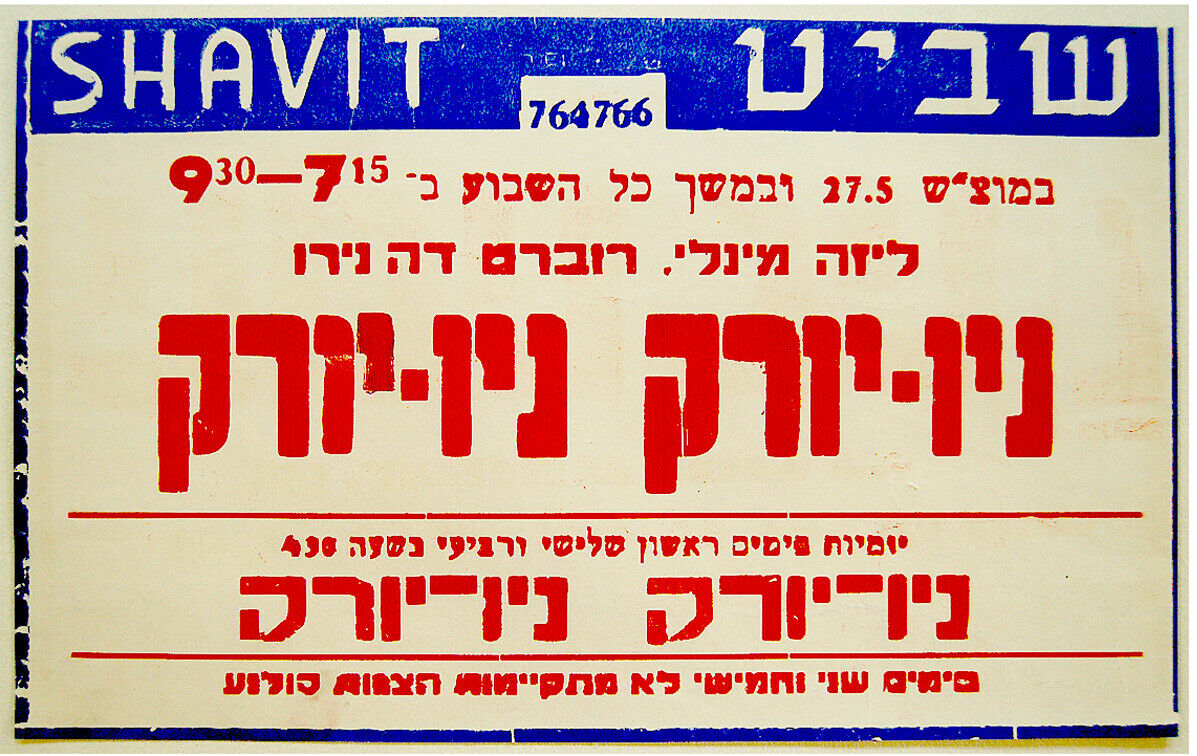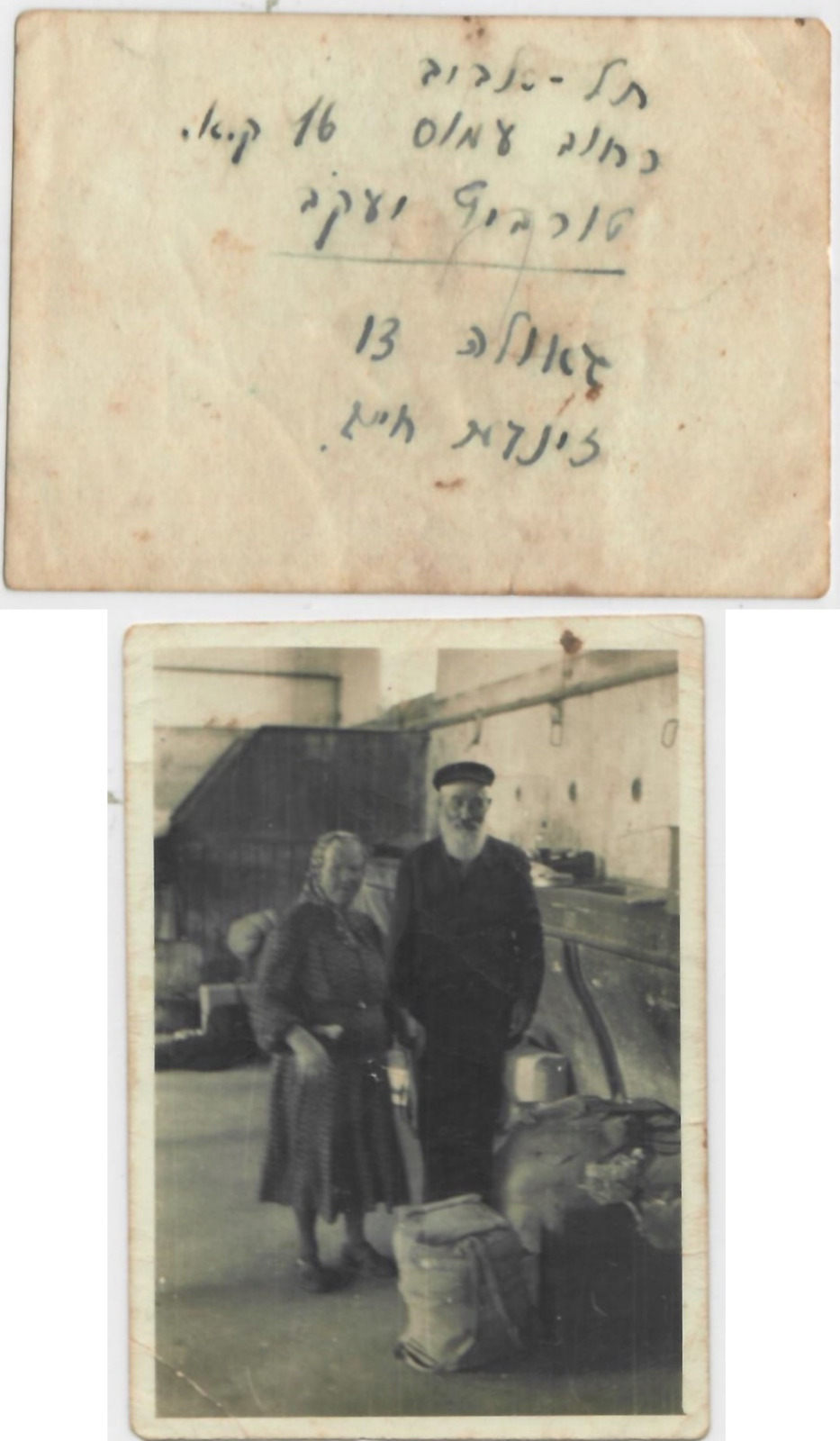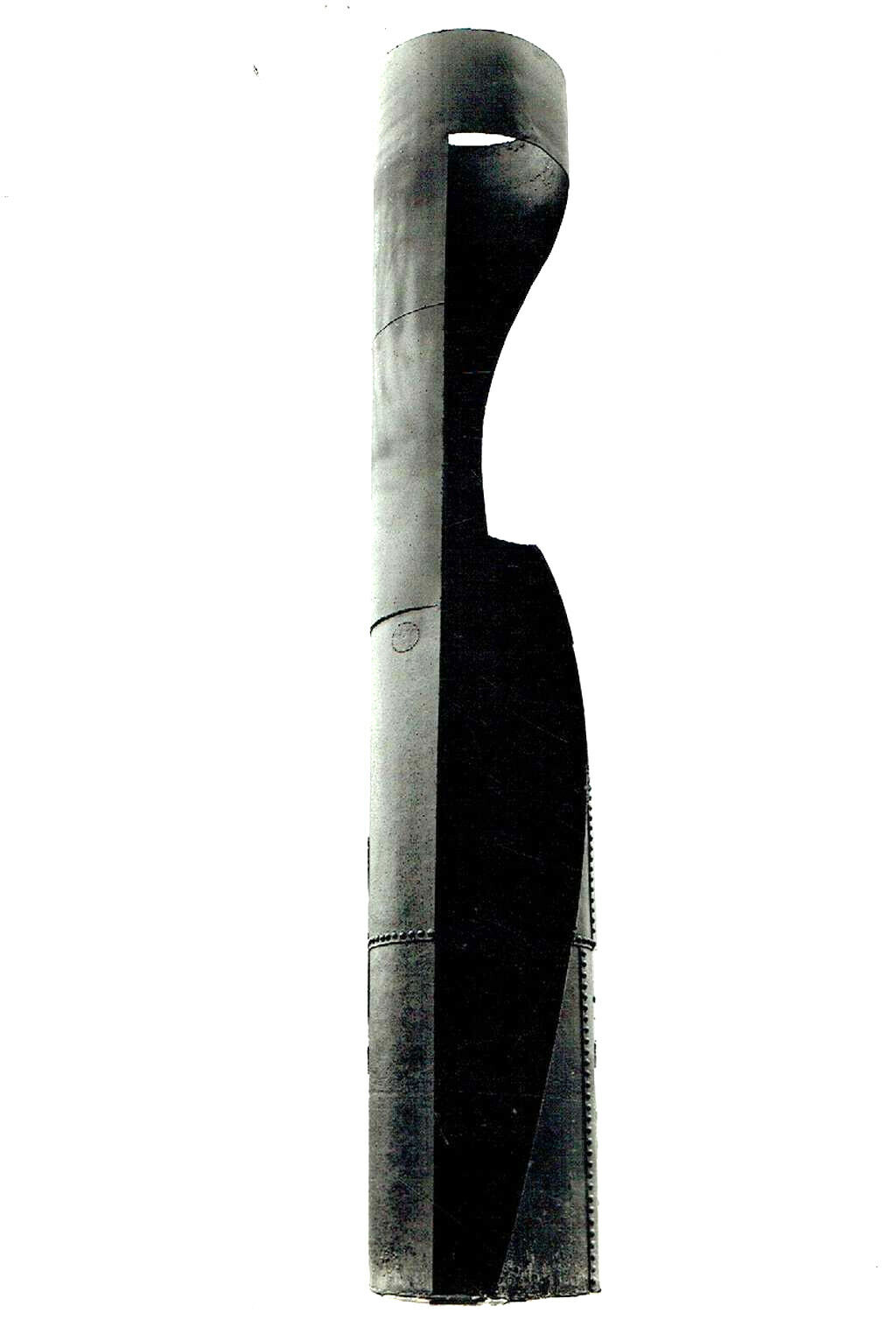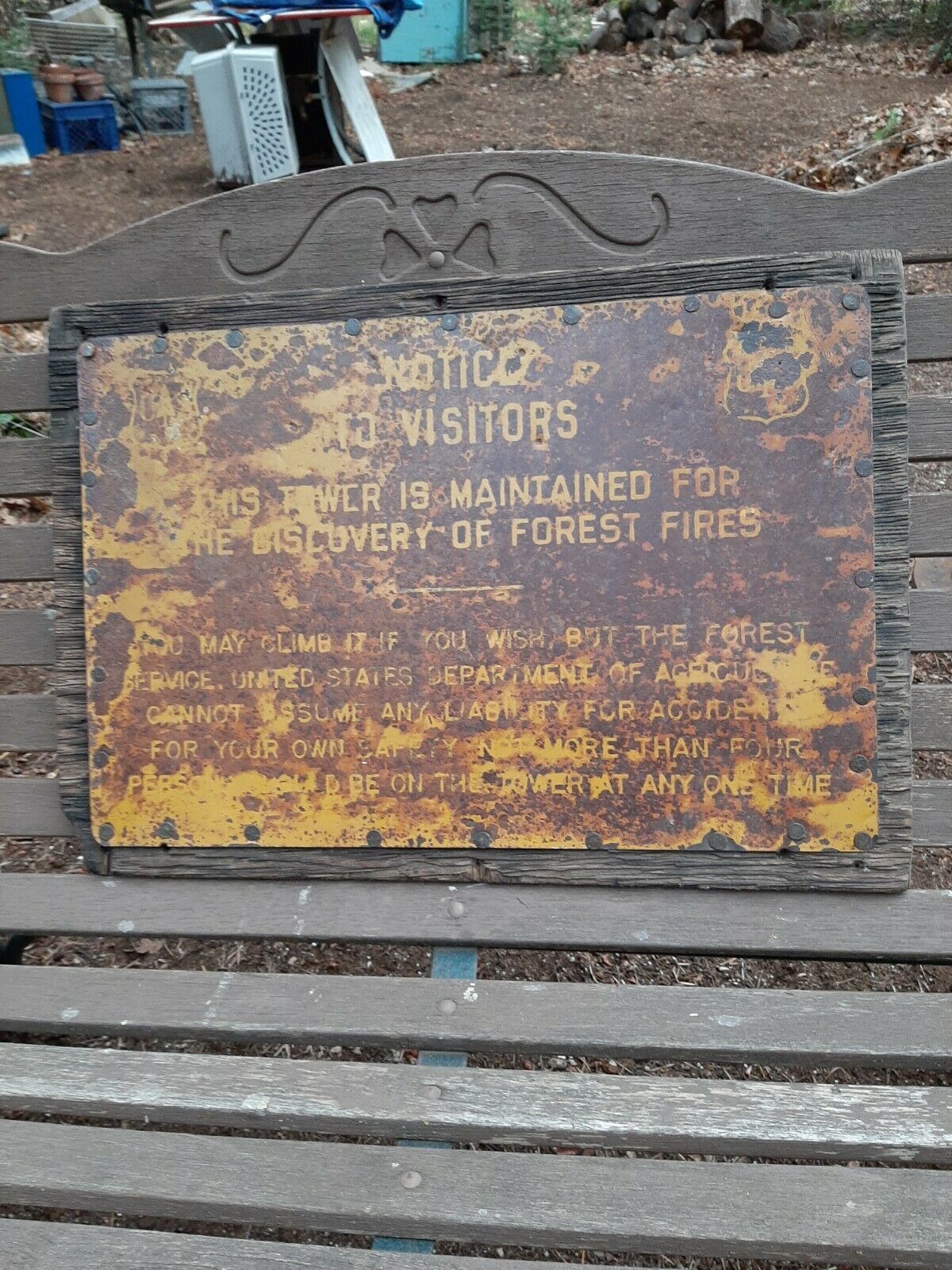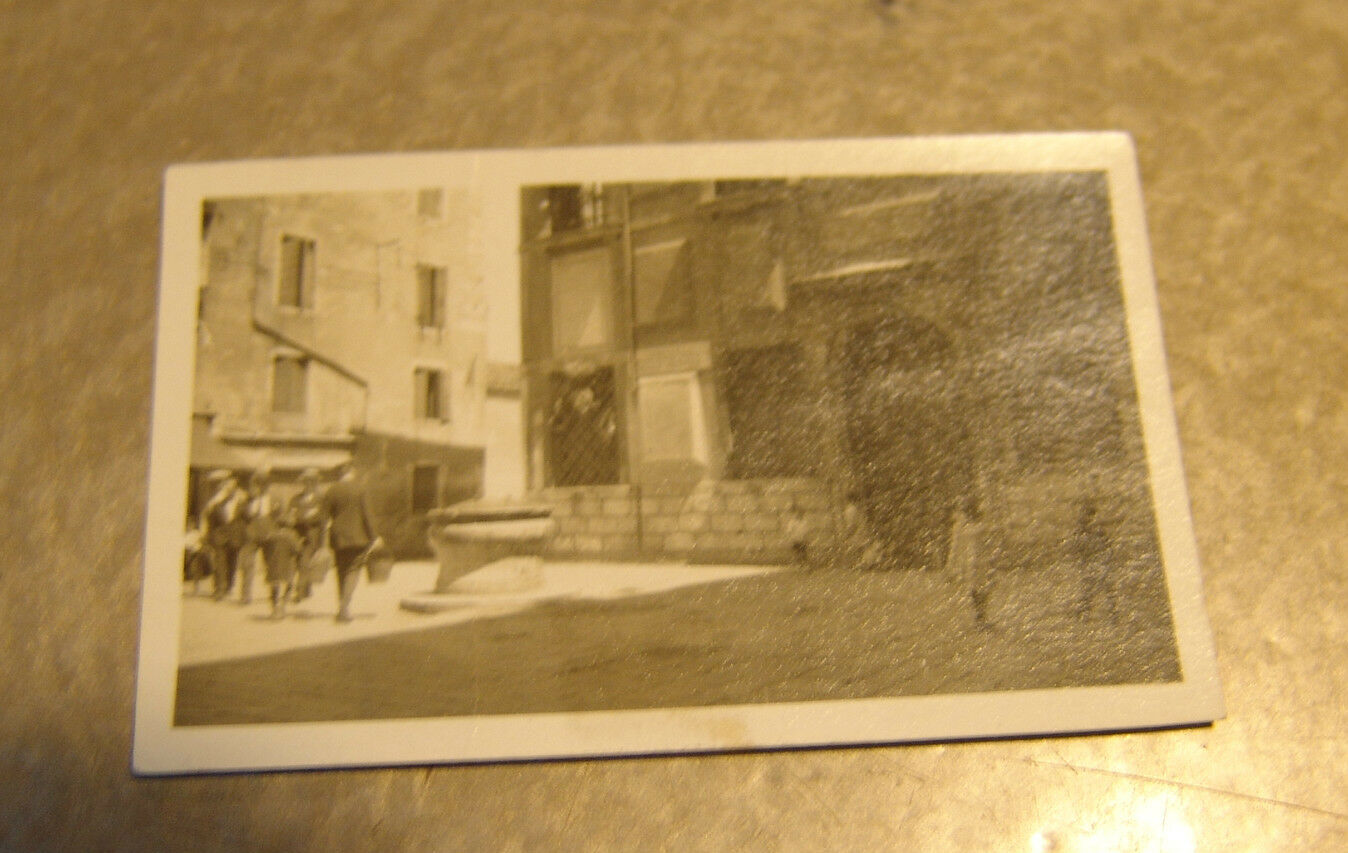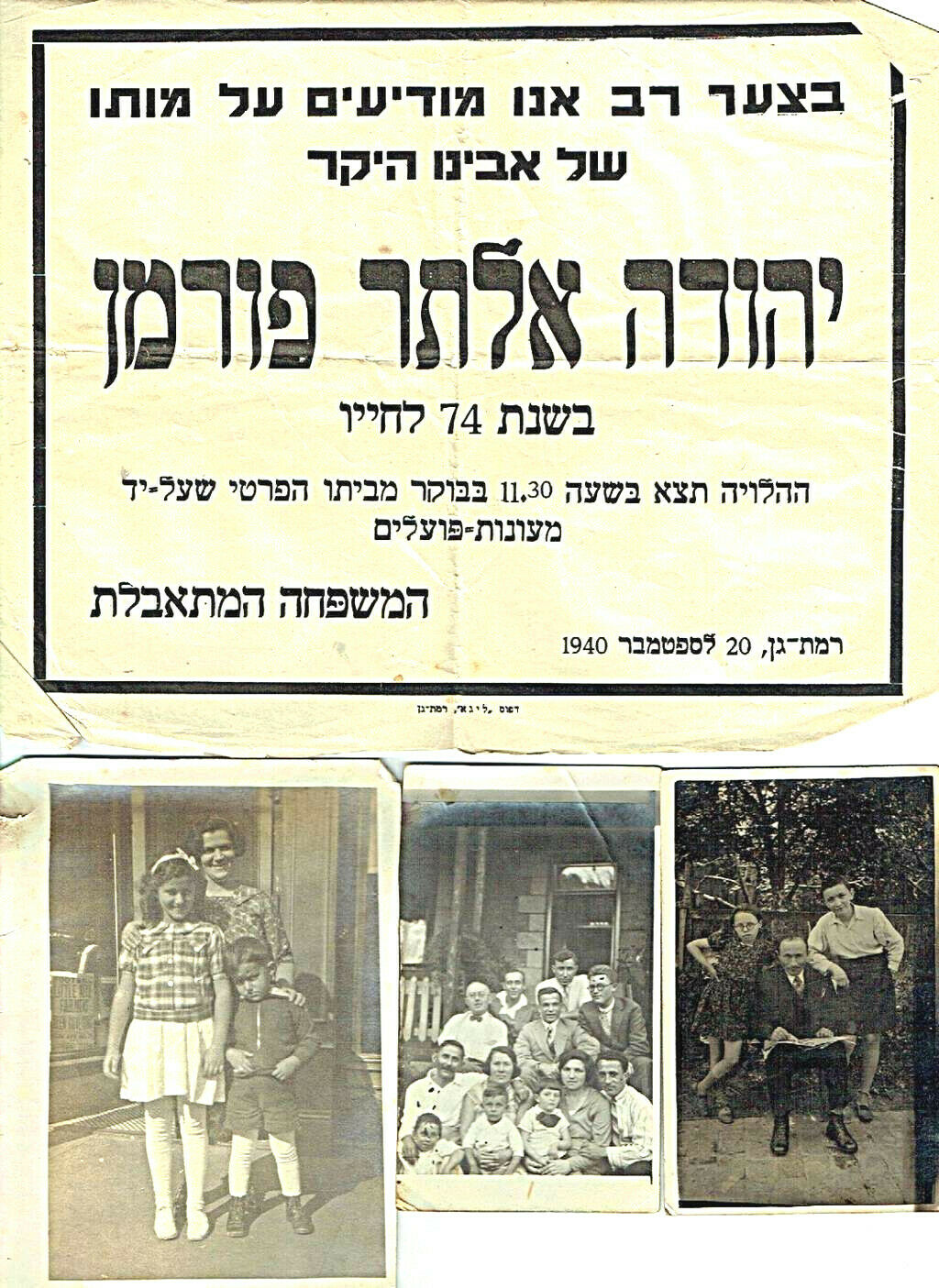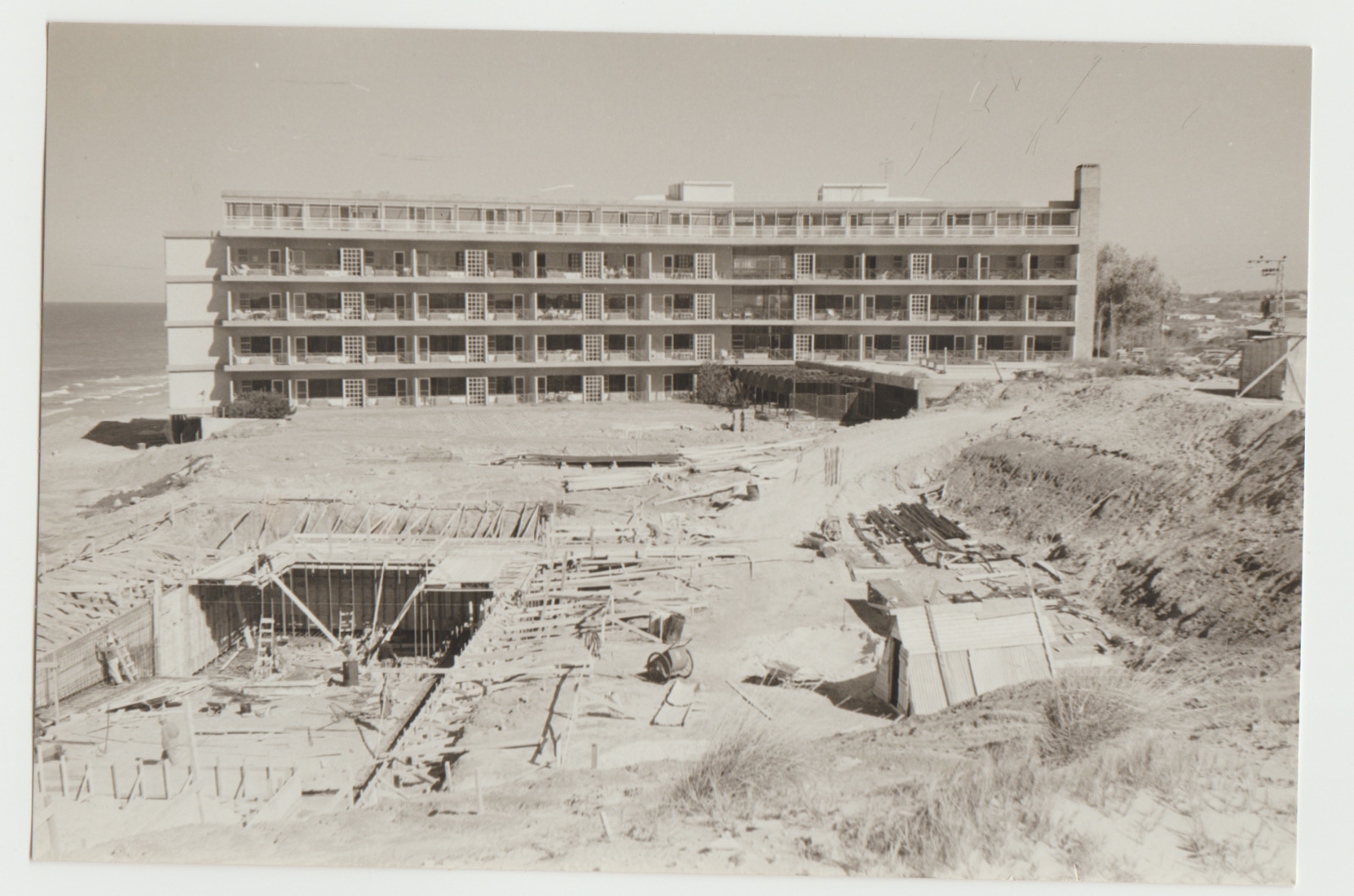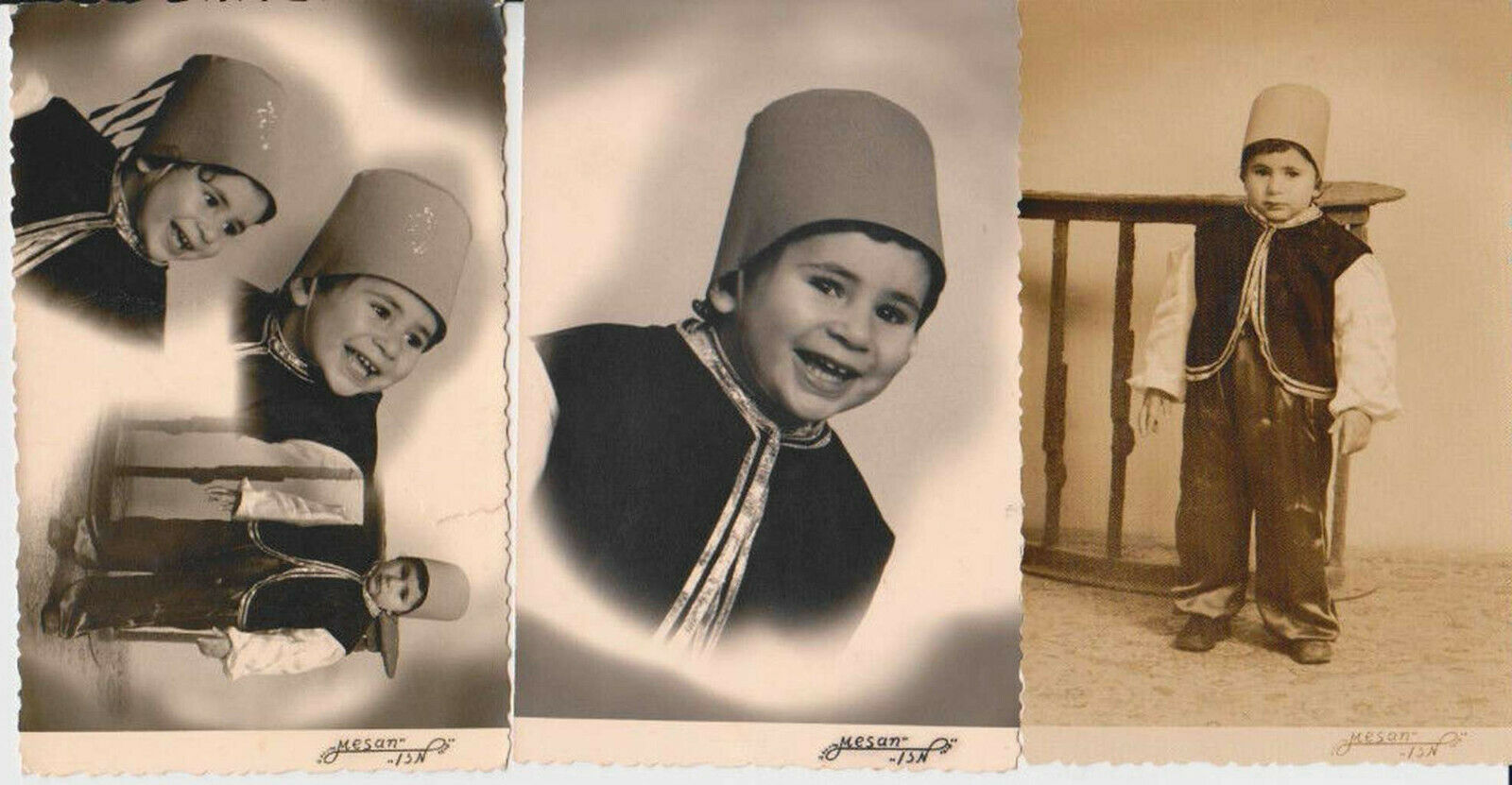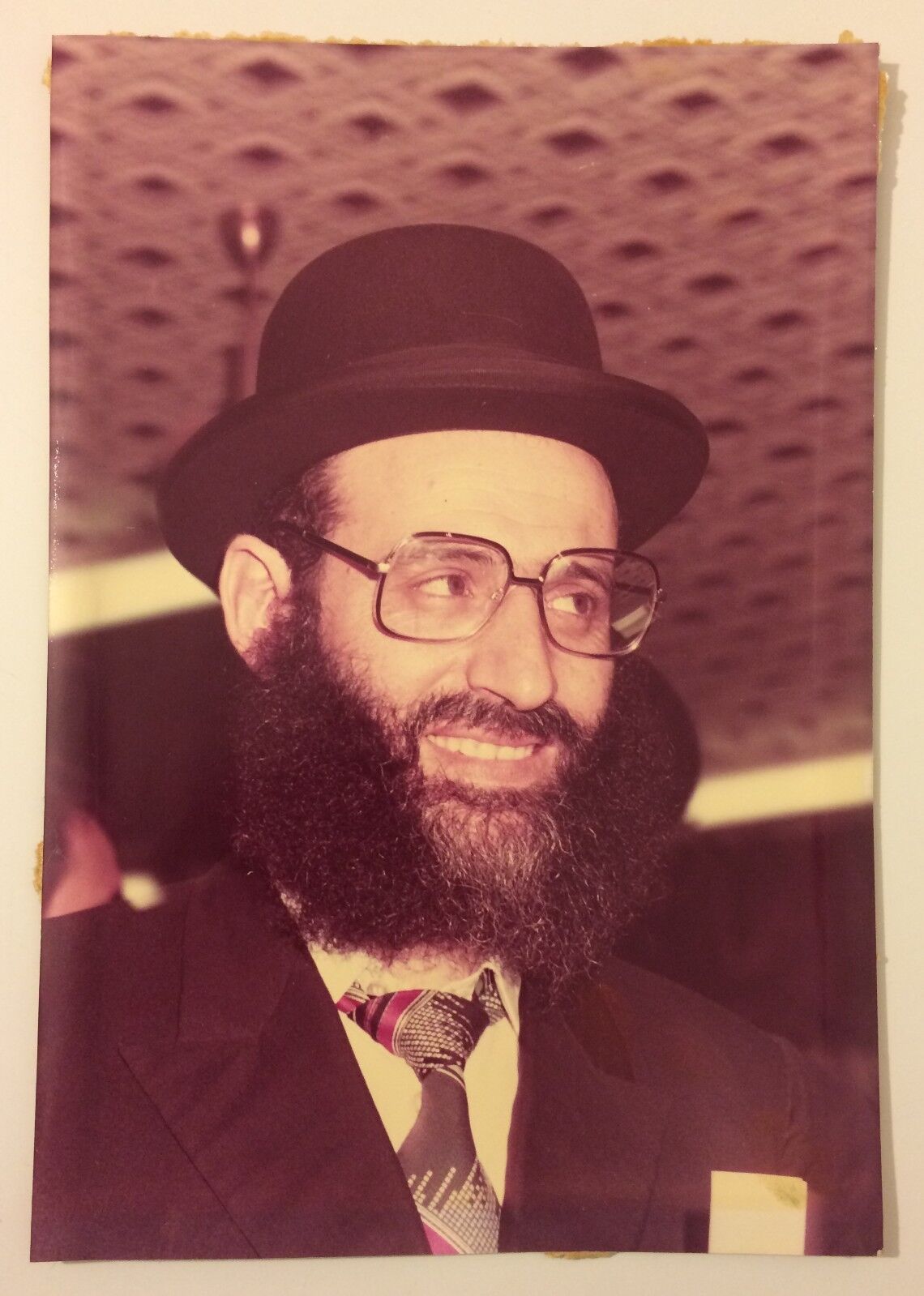-40%
1977 Movie NEW YORK NEW YORK Hebrew ISRAEL FILM POSTER Minnelli DE NIRO Scorsese
$ 39.6
- Description
- Size Guide
Description
DESCRIPTION:
Here for sale is an EXCEPTIONALY RARE and ORIGINAL over 40 years old Hebrew-Israeli SMALL POSTER for the
PREMIERE release of the legendary
MUSICAL
film by MARTIN SCORSESE - "
NEW YORK , NEW YORK
" , Starring
among others LISA MINNELLI and ROBERT DE NIRO
, in the small town of
RAMAT GAN
in ISRAEL
. The
Hebrew
poster was created ESPECIALLY for the Israeli release of the film . Please note : This is Made in Israel authentic THEATRE POSTER , Which was published by the Israeli distributors of "CINEMA
SHAVIT " in RAMAT GAN ISRAEL
for the Israeli
premiere
of the film
in ca 1977
. you can be certain that this surviving copy is ONE OF ITS KIND. Size 7" x 12" . The poster is in a very good condition. Clean and fresh.
( Pls look at scan for accurate AS IS images )
.
Poster will be sent in a special protective rigid sealed
package
.
PAYMENTS
:
Payment method accepted : Paypal & All credit cards.
SHIPPING
:
Shipp worldwide via registered airmail is . Poster will be sent in a special protective rigid sealed package.
Handling around 5 days after payment.
New York, New York is a 1977 American musical drama film directed by Martin Scorsese and written by Mardik Martin and Earl Mac Rauch based on a story by Rauch. It is a musical tribute, featuring new songs by John Kander and Fred Ebb as well as jazz standards, to Scorsese's home town of New York City, and stars Robert De Niro and Liza Minnelli as a pair of musicians and lovers. The story is "about a jazz saxophonist (De Niro) and a pop singer (Minnelli) who fall madly in love and marry"; however, the "saxophonist's outrageously volatile personality places a continual strain on their relationship, and after they have a baby, their marriage crumbles", even as their careers develop on separate paths.[3] The film marked the final screen appearance of actor Jack Haley. Contents 1 Plot 2 Cast 3 Music 4 Reception 4.1 Box office 4.2 Critical response 4.3 Accolades 4.3.1 Golden Globe Awards 5 Re-releases 6 See also 7 References 8 External links Plot[edit] On V-J Day in 1945, a massive celebration in a New York City nightclub is underway, music provided by the Tommy Dorsey Orchestra. While there, selfish and smooth-talking saxo player Jimmy Doyle (De Niro) meets small-time USO singer Francine Evans (Minnelli), who, although lonely, still wants nothing to do with Jimmy, who keeps pestering her for her number. The next morning, they end up sharing a cab, and, against her will, Francine accompanies Jimmy to an audition. There he gets into an argument with the club owner. Francine, to get the audition back on track, begins to sing the old standard, "You Brought a New Kind of Love to Me"; Jimmy joins in on his sax. The club owner is impressed and, to Francine's astonishment, they are both offered a job—as a boy-girl act. From that moment on, Jimmy and Francine's relationship deepens into a mix of obsession and love. But there are problems—mainly, Jimmy's tendency to fight with his co-workers, and his increasingly violent arguments with Francine, who becomes pregnant with his child. An especially bad shouting match between them results in Francine going into labor. Jimmy rushes her to the hospital, where she delivers a baby boy. But Jimmy is not ready to be a father, or a good husband, and he abandons his wife, declining even to see his newborn son as he leaves the hospital. Several years later, in a recording studio, Francine records "But the World Goes Round", a powerful anthem which makes the charts and turns her into a popular entertainment figure. In the years that follow, Jimmy and Francine both find success in the music industry; he becomes a renowned jazz musician and club owner, while she becomes a successful singer and film actress. Jimmy records a song of his on his saxo which tops the jazz charts, and Francine cements her stardom after singing that same song, "New York, New York", for which she has provided the lyrics. Her performance, received by a wildly appreciative audience, takes place in the same nightclub where, years earlier, she and Jimmy had met. After the show, Jimmy telep his ex-wife, suggesting they get together for dinner. Francine is tempted, heads toward the stage door exit, but at the last moment changes her mind. Jimmy, waiting on the sidewalk, realizes he has been stood up and heads off down the street, accompanied by the song he has written—the "Theme from New York, New York". Cast[edit] Liza Minnelli as Francine Evans Robert De Niro as Jimmy Doyle Lionel Stander as Tony Harwell Barry Primus as Paul Wilson Mary Kay Place as Bernice Bennett Frank Sivero as Eddie DiMuzio Georgie Auld as Frankie Harte George Memmoli as Nicky Harry Northup as Alabama Dick Miller as Palm Club Owner Clarence Clemons as Cecil Powell Casey Kasem as DJ aka Midnight Bird Adam David Winkler as Jimmy Doyle, Jr. Jack Haley (uncredited cameo) as Master of Ceremonies Music[edit] "Main Title" (Theme / You Are My Lucky Star / Just You, Just Me / The Man I Love - Medley) - Ralph Burns (1:53) "You Brought a New Kind of Love to Me" - Liza Minnelli (1:47) "Flip the Dip" - orchestra (2:13) "V.J. Stomp" - orchestra (1:08) "Opus Number One" - orchestra (8:49) "Once in a While" - Liza Minnelli (2:17) "You Are My Lucky Star" - Liza Minnelli (1:18) "Game Over" - orchestra (2:25) "It's a Wonderful World" - orchestra (2:08) "The Man I Love" - Liza Minnelli (3:20) "Hazoy" - orchestra (2:38) "Just You, Just Me" - Liza Minnelli (2:29) "There Goes the Ball Game" - Liza Minnelli (1:27) "Blue Moon" - Robert De Niro / Mary Kay Place (3:28) "Don't Be That Way" - orchestra (0:44) "Happy Endings" - Liza Minnelli / Larry Kert (11:39) "But the World Goes 'Round" - Liza Minnelli (3:58) "Theme from New York, New York" - orchestra (2:49) "Honeysuckle Rose" - Diahnne Abbott (2:16) "Once Again Right Away" - orchestra (2:04) "Bobby's Dream" - orchestra (3:58) "Theme from New York, New York" - Liza Minnelli (3:16) "Theme from New York, New York (Reprise)" - orchestra (1:13) The theme song of the film, "Theme from New York, New York", found its own success when Frank Sinatra recorded a cover version of it in 1980. The song became a hit, and both Sinatra's and Minnelli's versions have become closely associated with Manhattan in New York City. Minnelli continues to perform the number at nearly all of her concerts. Reception[edit] Box office[edit] Made after Scorsese's successful Taxi Driver, the film was a box-office failure. Its budget was million, a large figure at the time, and it grossed only .4 million at the box office. The disappointing reception drove Scorsese into depression and drugs.[4] In Peter Biskind's book Easy Riders, Raging Bulls it is reported that Scorsese's addiction to cocaine and complete lack of control over the improvisation of dialogue on the set were major factors that contributed to the failure of the film. United Artists ultimately recouped its loss on the film as a result of an agreement wherein they would share the profits with Rocky, which the executives had expected to be a flop.[5] In his introduction to the film's DVD, released in 2005, Scorsese explains that he intended the film as a break from the gritty realism for which he had become famous, and sees it as an homage to the musical films of Classical Hollywood. For this reason, he designed the film's sets and storyline to be deliberately artificial-looking. He acknowledges that it is an experiment that did not please everyone. Critical response[edit] On Rotten Tomatoes the film has an approval rating of 57% based on 35 reviews. The critical consensus reads, "Martin Scorsese's technical virtuosity and Liza Minnelli's magnetic presence are on full display in New York, New York, although this ambitious musical's blend of swooning style and hard-bitten realism makes for a queasy mixture."[6] TIME reviewer Christopher Porterfield stated that "If this movie were a big-band arrangement, it would be a duet for a sax man and a girl singer, but with the soloists in a different key from the band."[7] Critic Dave Kehr from the Chicago Reader wrote that "Scorsese created a very handsome and dynamic film, but the spectacular set pieces don't add up to much."[citation needed] Variety's uncredited reviewer stated that in "a final burst from Old Hollywood, Minnelli tears into the title song and it's a wowser."[8] Reviewer Geoff Andrew from Time Out states that "Scorsese's tribute/parody/critique of the MGM musical is a razor-sharp dissection of the conventions of both meeting-cute romances and rags-to-riches biopics."[citation needed] Reviewer Vincent Canby from The New York Times questioned, "Why should a man of Mr. Scorsese's talent be giving us what amounts to no more than a film buff's essay on a pop-film form that was never, at any point in film history, of the first freshness?"[9] Critic Roger Ebert from the Chicago Sun-Times writes that "Scorsese's New York, New York never pulls itself together into a coherent whole, but if we forgive the movie its confusions we're left with a good time."[10] Accolades[edit] The film is recognized by American Film Institute in these lists: 2004: AFI's 100 Years...100 Songs: "Theme from New York, New York" – #31[11] 2006: AFI's Greatest Movie Musicals – Nominated[12] Golden Globe Awards[edit] Nominations[13] Best Original Song: "New York, New York" by Fred Ebb and John Kander Best Motion Picture – Musical or Comedy Best Actress – Motion Picture Musical or Comedy: Liza Minnelli Best Actor – Motion Picture Musical or Comedy: Robert De Niro Re-releases[edit] When the film was originally released, it had a running time of 155 minutes. The box-office failure of the film prompted United Artists to cut the film down to 136 minutes. It was then re-released in 1981 with the deleted scenes restored, including the lengthy musical number "Happy Endings", only a small portion of which had appeared in the original release. The total running time of the DVD edition is 163 minutes. NEW YORK, NEW YORK NEW YORK, NEW YORK (1977) Cast Mary Kay Place as Berenice Barry Primus as Paul Wilson Liza Minnelli as Francine Evans Georgie Auld as Frankie Harte Robert De Niro as Jimmy Doyle Lionel Stander as Tony Harwell Produced by Robert Chartoff Irwin Winkler Screenplay by Mardik Martin Earl Mac Rauch Directed by Martin Scorsese Drama, Music, Romance Rated PG 163 minutes | Roger Ebert January 1, 1977 | 5 Print Page Martin Scorcesse's "New York, New York" never pulls itself together into a coherent whole, but if we forgive the movie its confusions we're left with a good time. In other words: Abandon your expectations of an orderly plot, and you'll end up humming the title song. The movie's a vast, rambling, nostalgic expedition back into the big band era, and a celebration of the considerable talents of Liza Minnelli and Robert De Niro. She plays a sweet kid with a big voice who starts as a band vocalist and ends up as a movie star. He plays an immature, aggressive, very talented saxoplayer whose social life centers around the saloon fights. A generation before Punk Rock, here's Punk Swing. They get married for reasons the movie never makes quite clear (oh, they're in love, all right, but he's so weird it's a miracle she'll have him). And then their marriage starts to disintegrate for reasons well hallowed in show-biz biographies: Her success, his insecurity, his drinking, their child. De Niro comes on as certifiably loony from the start, and some of the movie's best scenes are counterpoint between his clowning and her rather touching acceptance of it. Maybe because he's really shy underneath, he likes to overact in social situations. He's egotistical, self-centered, inconsiderate, and all sorts of other things she should leave him because of, and there are times when the Minnelli character is so heroically patient that it's gotta be love. The movie doesn't really explore the nuances of their personalities, though; the characters are seen mostly by their surfaces, and they inhabit a cheerfully phony Hollywood back-lot New York. Scorsese, who knows how to shoot New York in California so it looks real (see "Mean Streets"), is going for a frankly movie feel with his sets and decors, and especially with his colors, which tend toward lurid rotogravure. The look is right for the movie's musical scenes, and there are a lot of them: We start with a loving re-creation of V-J Day, with Tommy Dorsey's orchestra playing all the obligatory standards and De Niro trying with desperate zeal to pick up Minnelli. And then maybe half of the movie from then on will be music, mostly very good music (the movie's new songs deserve comparison with the old standards), and wonderfully performed. That Liza Minnelli has not been making an annual musical for the last decade is our loss; she's hauntingly good and so much more, well, human than Barbra Streisand. It's a good thing the movie inhabits a familiar genre, though, because the fact that we've seen dozens of other musical biographies helps us fill in the gaps in this one. And there are a lot of them; the movie originally came in at something like four hours, and the cuts necessary to get it down to a more commercial length are responsible for a lot of confusion. The confusions, as I've suggested, can be forgiven because the movie has so many good things in it. And in the video version, to make amends, they've put back two musical numbers that weren't seen in the theater. But the ending is still puzzling. We've seen De Niro, totally unable to deal with the fact that he's become a father, tearfully (and amusingly) end their marriage right there in the maternity ward. Six years pass, there are Liza's great final production numbers, and then they have a backstage reunion after her night of triumph. Great, we're thinking, we've been here before, we relish the obligatory romantic reunion scene in the dressing room. But, no, he leaves. Then he calls her from a pay : He can't stand the people she's with, but would she like to sneak out, meet by the stage door, eat some Chinese food, and talk about themselves? Sure, she would. He waits outside the door. She approaches it from inside, pauses, sees no one there, and goes back to her dressing room. End of movie (with a nicely evocative night street scene). But did she change her mind and decide not to go out and meet him, or did she expect him to be waiting inside the door -- and assume the cocky S.O.B. had stood her up again? This particular confusion is hard to forgive. So the movie's flawed. It's not Scorsese's best work, or De Niro's (there are scenes in which his personality quirks and bizarre behavior make him seem uncannily like his Travis Bickle in Scorsese's "Taxi Driver"). Liza Minnelli's musical numbers are wondrous, as I've said, but the movie doesn't provide her with a character as fully understood as "Cabaret" did. So I guess we go to "New York, New York" to enjoy the good parts, and spend just a moment regretting the absence of a whole. Film: 'New York' In a Tuneful Era By Vincent Canby June 23, 1977 Credit... The New York Times Archives See the article in its original context from June 23, 1977, Page 0Buy Reprints New York Times subscribers* enjoy full access to TimesMachine—view over 150 years of New York Times journalism, as it originally appeared. SUBSCRIBE *Does not include Crossword-only or Cooking-only subscribers. About the Archive This is a digitized version of an article from The Times’s print archive, before the start of online publication in 1996. To preserve these articles as they originally appeared, The Times does not alter, edit or update them. Occasionally the digitization process introduces transcription errors or other problems. Please send reports of such problems to archive. ROBERT DE NIRO is an actor of too much furious intelligence and humor to be contained very long by the ritualized conceits of "New York, New York," Martin Soorsese's elaborate, ponderous salute to Hollywood movies of the 1940's and early 50's in the form of a backstage musical of the period.Seeing Mr. De Niro as Jimmy Doyle, a talented, selfish, womanizing saxophonist, a variation on the sort of role that Tyrone Power played more than once, is to watch a man running to catch a train, only to pass right by it. The movie can't keep up with him.Nor, eventually, does it well serve Liza Minnelli as Francine Evans, the Helen Forrest-Kitty Kallenlike singer whose career, for a brief period of time, coincides with Jimmy Doyle's in the last years of the big-band era. Miss Minnelli doesn't outrun the film. With her apparently whole-hearted cooperation, the film uses her, especially toward the end when she's placed front-and-center to perform a series of evocations of her mother, Judy Garland, that are effectively eerie without being in the least bit moving."New York, New York," which opened yesterday at the Ziegfeld, means to recall the lost sights and sounds of post-World War II movies with affection and wit. Indeed, the good will is immense in the early scenes that establish the characters of the saxophonist and the singer, who meet as cute as Tyrone Power and Alice Faye ever did, and who become a "boy-girl" act after she, a nonlooker, saves his first audition by singing with him.The big-band sounds are right, as are the sets and costumes and especially the movie conventions. "New York, New York" knowingly embraces a narrative line as formal and strict in its way as the shape of a sonnet. Even the sets are meant to look like back-lot sets, not the real world. When Jimmy and Francine walk down a New York street, it's that New York street so many of us grew up with, the one that abruptly terminates in a row of brownstones because, after all, there was only so much studio space.Yet, after one has appreciated the scholarship for about an hour or so, admiring Mr. De Niro's manic intensity and Miss Minnelli's way of desperately throwing out comic lines as if they were failed lassoes—things that are often funny in themselves—one begins to wonder what Mr. Scorsese and his writers, Earl Mac Rauch and Marik Martin, are up to."New York, New York" is not a parody," but the original genre is really not interesting enough to have had all of this attention to detail spent on it. It's not that the movie runs out of steam long before it has gone on for two hours and 33 minutes, but that we have figured it out and become increasingly dumbfounded. Why should a man of Mr. Scorsese's talent ("Mean Streets," "Alice Doesn't Live Here Anymore." "Taxi Driver") be giving us what amounts to no more than a film buff's essay on a pop-film form that was never, at any point in film history, of the first freshness?Even more disturbing is the movie's lack of feeling for the genuine feelings that those old movies were meant to inspire.Toward the end of the film, when Miss Minnelli is being photographed in such a way as to recall Miss Garland (in "The Man Who Got Away" number from "A Star Is Born"), or being dressed in the black tights and mandarin jacket that her mother favored late in her career, it seems that nothing is sacred. That suspicion is confirmed by the film's title song, a new number written by John Kander and Fred Ebb that is not to be confused with the classic from "On the Town," written by Leonard Bernstein with Betty Camden and Adolph Green.The three other new Kander and Ebb songs are not objectionable, and the dozen or so old songs are fine, including those sung by Miss Minnelli and one, "Honeysuckle Rose," sung by Diahnne Abbott (Mrs. De Niro), in what appears to be a recollection of Billie Holiday. Mary Kay Place, one of the great attractions of "Mary Hartman, Mary Hartman," has some good moments as another band singer, and Lionel Stander and Lenny Gaines are among the more prominent supporting players."New York, New York" is not a disaster of the order of Peter Bogdanovich's "At Long Last Love." Mr. De Niro and Miss Minnelli have talent in excess. Yet "New York, New York" is a somehow more painful movie, being nervy and smug. "At Long Last Love" was appealing in the way of someone who gallantly refuses to acknowledge having two left feet."New York, New York," which has been rated PG ("Parental Guidance suggested"), contains some mildly vulgar language, but is otherwise not much more explicit than films of the period that it recalls. Nostalgic Doings NEW YORK, NEW YORK, directed by Martin Scorsese; screenplay by Earl Mac Rauch and Marik Martin, based on a story by Mr. Mac Rauch; produced by Irwin Winkler and Robert Chartoff; director of photography, Laszlo Kovacs; original songs by John Kinder and Fred Ebb; supervising film editors, Irving Lerner and Marcia Lucas; editors, Tom Rolf and B. Lovitt; distributed by United Artists. Running time: 153 minutes. At the Ziegfeld Theater, 54th Street near the Avenue of the Americas. This film has been rated PG.Francine Evans . . . . . Liza MinnelliJimmy Doyle . . . . . Robert De NiroTony Harwell . . . . . Lionel StanderPaul Wilson . . . . . Barry PrimusBernice . . . . . Mary Kay PlaceFrankie Harte . . . . . Georgie AuidNickie . . . . . George MemmoliPalm Club owner . . . . . Dick MillerHorace Morris . . . . . Murray MostonArtie Kirks . . . . . Lenny GainesCecll Powell . . . . . Clarence ClemonsEllen Flannery . . . . . Kathi McGinnisDesk clerk . . . . . Norman PalmerEddie Di Muzio . . . . . Frank SiveraJimmy Doyle Jr. . . . . . Adam David WinklerDesk clerk . . . . . Dimitri LegothetisHarlem Club singer . . . . . Diahnne Abbott ebay3497 folder 100
